
Overview
Water quality testing is the process of assessing the physical, chemical, and biological characteristics of water to determine its suitability for various purposes, such as drinking, swimming, industrial use, or environmental monitoring. This essential practice helps ensure that water sources are safe and meet established standards.
Depending on specific features and functions, GAO Tek’s ion meters are sometimes referred to as ion-selective electrode (ISE), ion-specific electrode (ISE), ion concentration meter, ion analyzer meter, potentiometric ion meter, electrochemical ion meter, ion concentration probe.
GAO Tek’s ion meters have the following applications in water quality testing:
- Drinking Water Analysis: GAO Tek’s ion meters are used to monitor the levels of essential ions like sodium (, potassium (, calcium and magnesium () in drinking water. These measurements are crucial for ensuring that the water is safe and meets regulatory standards.
- Wastewater Treatment: Our ion meters are employed in wastewater treatment plants to measure the concentrations of ions like chloride (, sulfate (, and nitrate (to assess the efficiency of the treatment process and ensure compliance with discharge regulations.
- Environmental Monitoring: GAO’s ion meters are used in environmental studies to measure ions such as phosphate (, ammonium (, and nitrate (in natural water bodies like rivers, lakes, and oceans. These measurements help in assessing water quality and detecting pollution.
- Agricultural Applications: GAO Tek’s ion meters are used in agriculture to monitor the levels of ions in irrigation water. This helps in optimizing nutrient delivery to crops and preventing issues related to over-fertilization or salinity.
- Aquaculture: In aquaculture, ion meters are used to monitor the ion concentrations in fish tanks and ponds. Proper ion balance is essential for the health and growth of aquatic organisms.
- Industrial Processes: Many industrial processes require precise control of ion concentrations in water. Ion meters are used to monitor and control these levels, ensuring the quality of the final product and minimizing the risk of equipment corrosion.
- Laboratory Research: GAO’s Ion meters are essential tools in research laboratories for various applications, including studying chemical reactions, enzyme activity, and ion-selective electrode calibration.
- Medical and Clinical Analysis: Our ion meters are used in clinical laboratories to measure ions in blood, urine, and other bodily fluids. These measurements are critical for diagnosing and monitoring various medical conditions.
- Soil Analysis: In agriculture and environmental science, ion meters are used to analyze soil samples for ions like pH, nitrate, and potassium. This information helps in making informed decisions about soil management and fertilization.
- Food and Beverage Industry: GAO’s ion meters are employed to analyze the ion content of food and beverages, ensuring product quality and compliance with regulatory standards.
- Swimming Pool and Spa Maintenance: GAO Tek’s ion meters help maintain the proper balance of ions, such as chlorine and bromine, in swimming pools and spas, ensuring the water is safe for recreational use.
More information on ion meters and their applications in other industries can be found on this page
This category page lists related products
GAO Tek’s targeted markets are North America, particularly the U.S., Canada, Mexico, and Europe. Hence, in addition to English, this website gaotek.com is offered in other major languages of North America and Europe such as Spanish, French, German, Italian, Polish, Ukrainian, Romanian, Russian, Dutch, Turkish, Greek, Hungarian, Swedish, Czech, Portuguese, Serbian, Bulgarian, Croatian, Danish, Finnish, Norwegian, Slovak, Catalan, Lithuanian, Bosnian, Galician, Slovene, Latvian, Estonian, Welsh, Icelandic, and Irish.
Complying with water quality testing Standards
GAO Tek’s ion meters comply or help our customers comply with the water quality testing standards such as:
- ISO 7888
- ISO 10523
- ISO 15061
- ISO 17294-2
- ASTM D1293
- ASTM D3370
- ASTM D4282
- ASTM D5464
- US EPA Method 365.2
- US EPA Method 411.1
- US EPA Method 415.1
- US EPA Method 418.1
Complying with Government Regulations
GAO Tek’s ion meters comply or help our customers comply with the U.S. government regulations such as:
- CWA
- SDWA
- NPDWR
- NSDWR
- NPDES
- EPA Water Quality Standards
- TMDL Program
- RCRA
- CAA
- CERCLA
- EPCRA
- FIFRA
GAO Tek’s ion meters comply or help our clients comply with the Canadian regulations such as:
- CEPA
- Fisheries Act
- Safe Drinking Water for First Nations Act
- GCDWQ
- EQGs
- Canadian Water Quality Guidelines
- Wastewater Systems Effluent Regulations
- NPRI Reporting Requirements
- Federal Fisheries Act Regulations
- CEAA
GAO Tek’s ion meters comply or help our clients comply with the Mexican regulations such as
- CONAGUA
- NOM
- PROFEPA
- State Environmental Agencies
GAO Tek’s ion meters comply or help our clients comply with the European regulations such as:
- WFD
- DWD
- Bathing Water Directive
- Groundwater Directive
- UWWTD
- IED
- REACH
- EQS
- Priority Substances Directive
- MSFD
- WISE
Case Studies of ion meters in water quality testing
Ion meters are sometimes called as ion-selective electrode (ISE), ion-specific electrode (ISE), ion concentration meter, ion analyzer meter, potentiometric ion meter, electrochemical ion meter, ion concentration probe.
Here are some practical examples of using ion meters in water quality testing:
Alpine Lakes and Mountain Streams Analysis: Investigate the use of ion meters in the European Alps to monitor ions and assess water quality in alpine lakes and streams affected by climate change and tourism.
Analyzing Groundwater Quality: Case studies might focus on using ion meters to measure ions in groundwater, including sulfate, iron, and calcium, to assess groundwater quality and suitability for various uses.
Aquaculture Water Quality Management: Explore case studies where ion meters are employed in Mexico’s aquaculture industry to monitor ion levels in fish tanks and ponds, ensuring optimal conditions for fish growth and health.
Assessing Impacts of Climate Change: Researchers may use ion meters to evaluate the impact of climate change on Canadian water bodies, including changes in ion concentrations, pH levels, and their implications for biodiversity and water resource management.
Assessing Impacts of Mining Activities: Case studies may demonstrate how ion meters are used to detect and quantify ions associated with mining runoff, helping to mitigate the environmental impact on nearby water resources.
Assessing Salinity in Coastal Regions: Researchers might use ion meters to monitor chloride and other ions in coastal areas of Canada to understand the impact of saltwater intrusion on freshwater sources and aquatic ecosystems.
Assessing Salinity Levels in Agricultural Irrigation Water: Explore case studies of how ion meters are employed in Mexico’s agricultural regions to measure sodium and chloride levels in irrigation water, helping farmers manage soil salinity and crop health.
Assessing the Impact of Mining Activities: Researchers may use ion meters to detect and quantify ions associated with mining runoff in Canadian regions with active or historical mining operations, contributing to the understanding of environmental impacts and mitigation strategies.
Baltic Sea Water Quality Monitoring: Investigate how ion meters are used in the Baltic Sea region to monitor ions like phosphates, nitrates, and heavy metals, assessing the health of this sensitive marine ecosystem and addressing pollution concerns.
Danube River Basin Water Quality Assessment: Explore case studies on the use of ion meters in countries along the Danube River to assess water quality, including measurements of ions such as chloride, sulfate, and ammonium.
Desalination Plant Operation: Study the use of ion meters in desalination plants along Mexico’s coasts to monitor and control ion levels in the desalination process, ensuring a stable freshwater supply.
Detecting Heavy Metal Contamination: Ion meters can be employed in case studies to detect heavy metal ions like lead, copper, and mercury in drinking water sources or industrial discharge sites, ensuring compliance with safety regulations.
Drinking Water Quality in Rural Communities: Explore how ion meters are employed to measure ions in drinking water sources in rural areas of Mexico to address water quality and accessibility issues.
Drinking Water Treatment Optimization: Case studies may showcase how ion meters assist water treatment plants in optimizing the addition of chemicals such as chlorine or lime to achieve the desired pH levels and water quality standards.
Evaluating Desalination Processes: Ion meters can be involved in assessing the efficiency of desalination processes by measuring ions in both the source water and the treated water.
Evaluating Drinking Water Treatment Processes: Case studies can highlight the use of ion meters in Canadian drinking water treatment plants to optimize pH control, ensure compliance with regulatory standards, and enhance water quality.
Groundwater Quality in the Netherlands: Study how ion meters are employed to monitor ions like nitrate and sulfate in groundwater, which is crucial for maintaining water quality and preventing land subsidence.
Industrial Effluent Monitoring: Look into case studies where ion meters are used in industrial areas in Mexico to monitor the discharge of ions and pollutants into water bodies, ensuring compliance with environmental regulations.
Mining Industry Water Quality Compliance: Investigate how ion meters are used in regions with mining activities in Mexico to monitor and manage water quality, particularly with regard to heavy metal ions and pH levels.
Monitoring Coastal Water Quality: Study how ion meters are used in coastal areas of Mexico to measure ions such as dissolved oxygen, nitrate, and phosphate to assess the health of marine ecosystems and address pollution concerns.
Monitoring Nutrient Levels in Agricultural Runoff: Case studies may demonstrate how ion meters are used to measure ions like nitrate and phosphate in water bodies affected by agricultural runoff. This information is crucial for managing water quality and preventing nutrient pollution.
Monitoring Nutrient Levels in Canadian Lakes: Case studies may focus on using ion meters to measure ions like phosphate and nitrate in Canadian lakes, particularly those affected by agricultural runoff or urban development, to assess water quality and the risk of eutrophication.
Monitoring pH in Aquatic Ecosystems: Researchers may use ion meters to monitor pH levels in lakes, rivers, and streams to assess the health of aquatic ecosystems and the impact of acid rain or pollution.
Monitoring pH Levels in Canadian Rivers: Researchers might use ion meters to monitor pH levels in Canadian rivers, streams, and waterways to assess changes in water quality and the potential impact on aquatic ecosystems.
Monitoring Water Quality in Mexico City’s Aquifer: Investigate how ion meters are used to monitor key ions (e.g., chloride, sulfate, nitrate) in the groundwater of the Mexico City metropolitan area to assess the impact of urbanization and pollution.
Optimizing Desalination Processes: Case studies might assess the effectiveness of desalination processes in Canadian regions with water scarcity issues, involving ion meters to measure ion concentrations before and after treatment.
River and Lake Restoration Projects: Investigate how ion meters are used in projects aimed at restoring the water quality of rivers and lakes in Mexico by monitoring and controlling ion concentrations.
Tracking Changes in Ion Concentrations Over Time: Long-term monitoring studies could use ion meters to track changes in ion concentrations in Canadian water bodies, providing valuable data for environmental management and policy decisions.
Tracking Groundwater Quality: Case studies may involve using ion meters to measure ions such as sulfate, calcium, and magnesium in groundwater sources across Canada, helping to evaluate groundwater quality and its suitability for drinking water and industrial purposes.
Wastewater Treatment Compliance: Case studies can highlight the use of ion meters in wastewater treatment facilities to ensure compliance with discharge permits and effluent quality standards.
GAO RFID Inc. a sister company of GAO Tek Inc., is ranked as a top 10 RFID supplier in the world. Its RFID, BLE, and IoT products have also been widely used in water quality testing.
Use of ion meters with Leading Software and Cloud Services in water quality testing
GAO Tek has used or has facilitated its customers to use GAO’s ion meters with some of the leading software and cloud services in their applications. Examples of such leading software and cloud services include:
- Amazon Web Services (AWS)
- Backblaze B2 Cloud Storage
- Box
- Box for Business
- Dropbox
- Eutech Ion 6+ App
- G Suite
- Google Cloud Platform
- Google Drive
- Hach HQd App
- Hanna Lab App
- HORIBA LAQUAact
- IBM Cloud
- iCloud
- Jenway
- LabVIEW
- Lovibond® Water-i.d App
- Metrohm Ti-Touch
- Mettler Toledo LabX
- Microsoft 365
- Microsoft Azure
- Milwaukee MIQ App
- Myron L Company Ultrameter II App
- Oakton Ion 6+ App
- OHAUS Starter App
- OI Analytical CFA11 App
- OneDrive
- Open-source Data Analysis Tools
- Oracle Cloud
- pCloud
- SpiderOak
- com
- Thermo
- Tresorit
- VWR Symphony App
- YSI KOR
- Zoho Workspace
GAO Tek’s ion meters and their applications in other industries are listed on this page
Other related products can be found at this category page.
Meeting Customers’ Demands
Large Choice of Products
In order to satisfy the diversified needs of their corporate customers, GAO Tek Inc. and its sister company GAO RFID Inc. together offer a wide choice of testing and measurement devices, network products, RFID, BLE, IoT, and drones.
Fast Delivery
To shorten the delivery to our customers, GAO has maintained a large stock of its products and is able to ship overnight within the continental U.S. and Canada, and fast delivery to Mexico and Europe from the nearest warehouse.
Local to Our Customers
We are located in both the U.S. and Canada. We travel to customers’ premises if necessary. Hence, we provide a very strong local support to our customers in North America, particularly the U.S., Canada and Mexico and Europe. Furthermore, we have built partnerships with some integrators, consulting firms and other service providers in different cities to further strengthen our services. Here are some of the service providers in water quality testing we have worked with to serve our joint customers:
- Accenture
- Altran
- Atos
- BearingPoint
- Capgemini
- CGI
- Cognizant
- Deloitte
- Devoteam
- EPAM Systems
- Everis Mexico
- EY (Ernst & Young)
- HCL Technologies
- Hexaware
- Huron Consulting Group
- IBM
- Infosys
- Katalon
- KPIT Technologies Canada
- KPMG
- LTI (Larsen & Toubro Infotech)
- Mindtree
- NTT DATA
- Perficient
- PwC (PricewaterhouseCoopers)
- QA InfoTech
- QualityLogic
- Slalom
- Softtek
- Sogeti
- Sopra Steria
- Tata Consultancy Services (TCS)
- Tech Mahindra
- io
- UST Global
- Virtusa
- West Monroe Partners
- Wipro
- XBOSoft
- Zensar
GAO Has Many Customers in Water Quality Testing
The products from both GAO Tek Inc. and GAO RFID Inc. have been widely used in water quality testing by many customers, including some leading companies. Here is more information on applications of GAO RFID Inc.’s products in water quality testing.
Utilities Industry | RFID Solution
Here are some of GAO’s customers in water quality testing:
- Aqualogic, Inc.
- Eutech Instruments
- Hach
- Hanna Instruments
- HORIBA
- Hydrolab, a Xylem brand
- Laqua America
- Metrohm USA
- Mettler-Toledo
- Milwaukee Instruments
- OHAUS Corporation
- ProMinent Fluid Controls, Inc.
- Sper Scientific
- VistaLab Technologies
- VWR International
- Wagtech International
- WTW – a Xylem brand
- YSI
- Concord Environmental Equipment
- Evoqua Water Technologies
- LaMotte
- Lovibond
- Oakton Instruments
- Thermo Fisher Scientific











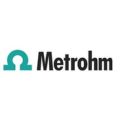



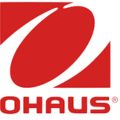



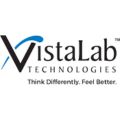
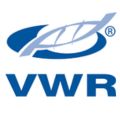

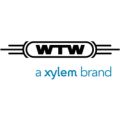

Contact Us
If you are interested in our products, services or partnering with us, please feel free to contact us by filling out this form:
or email us at sales@gaotek.com
